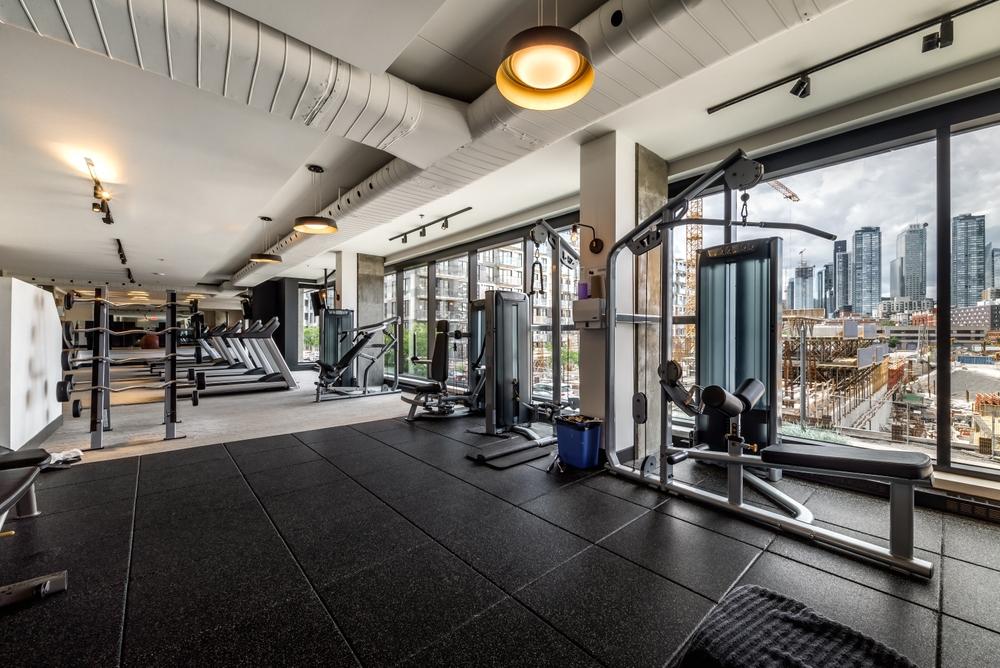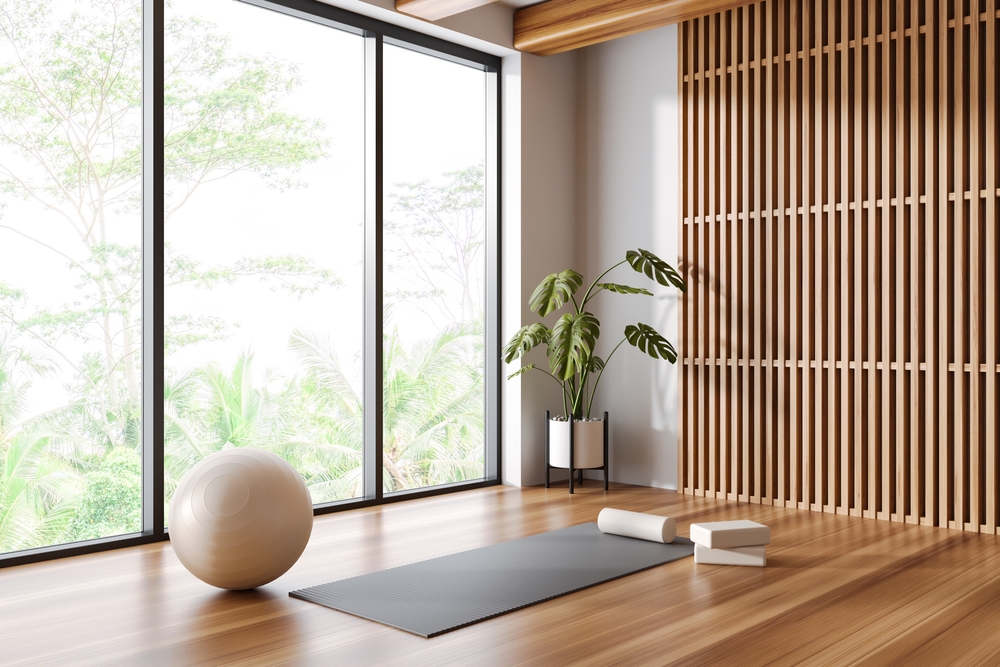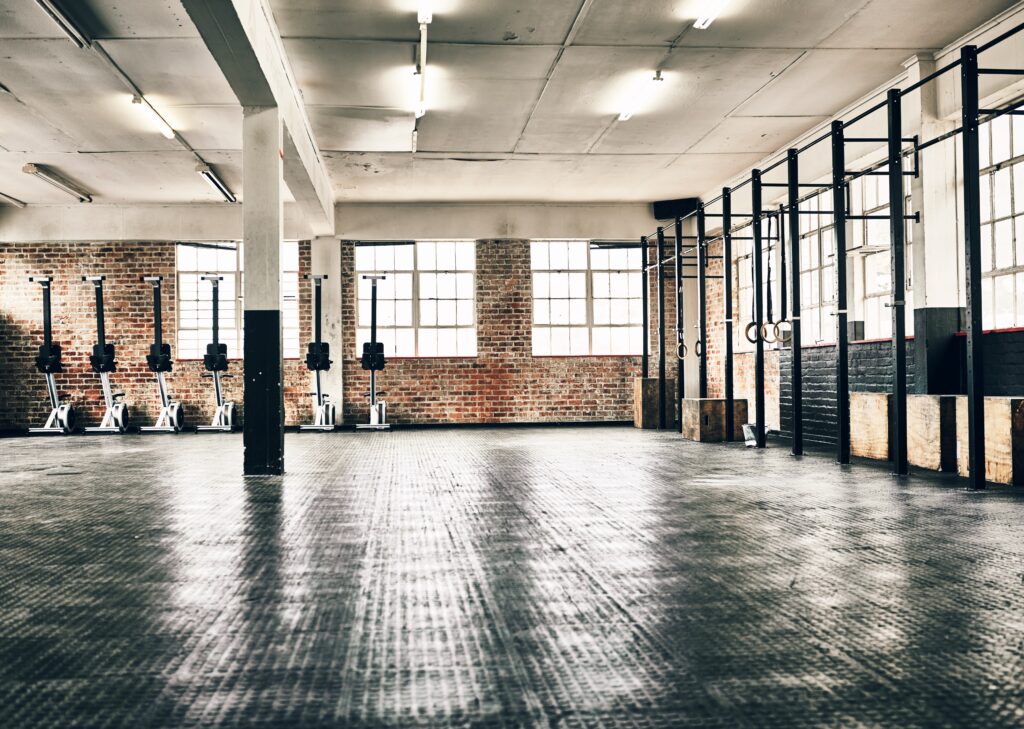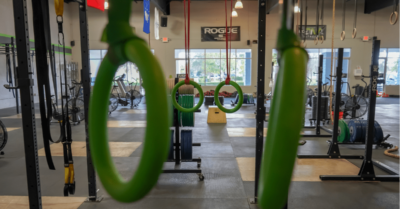The fitness industry is booming. More and more people are prioritizing their health and well-being, leading to a surge in gym memberships. If you’re a new gym owner, congratulations; you’re entering a thriving market filled with opportunity. But before you start recruiting members or building marketing campaigns, you need to find your business’ home. But is there such a thing as the perfect commercial real estate for gyms?
Choosing the right location isn’t just about aesthetics. It sets the stage for your entire business, impacting everything from member acquisition to retention. In this guide, we’ll equip you with the knowledge and practical steps you need to navigate the commercial real estate landscape and find the ideal space for your fitness empire.
In a hurry? Here’s a quick summary of what we’ll cover below
- Step 1: Determine your gym type, target demographics, and space requirements to ensure the location aligns with your business model and growth plans.
- Step 2: Choose a location with good accessibility, minimal direct competition, and a suitable local demographic.
- Step 3: Consider initial costs like rent and renovations, explore financing options, and plan for ongoing expenses.
- Step 4: Understand lease terms, negotiate for favorable conditions, and consult a legal expert.
- Step 5: Ensure compliance with zoning laws, health and safety regulations, and obtain necessary licenses.
- Step 6: Optimize space for functionality and member experience, keeping future expansion in mind.
- Step 7: Use pre-opening marketing, community engagement, and a grand opening event to attract members.
Understanding Your Needs: Every Gym is Unique

Before embarking on your real estate adventure, take a step back and consider your specific needs. Gyms come in all shapes and sizes, each catering to a distinct clientele and workout philosophy. Here are some key questions to answer:
- What type of gym will you operate? Do you envision a boutique fitness studio offering personalized training, a sprawling big-box gym with a vast array of equipment, or a specialized center focused on yoga, CrossFit, or martial arts? Each type requires a different amount of space and specific layout considerations.
- Who are your target members? Understanding your ideal client’s demographics is crucial. Are you targeting young professionals, families with children, or retirees? Knowing your audience will help you determine the best location – maybe it’s near a bustling business district or a quiet suburban neighborhood.
- How much space do you need? Factor in not just your equipment needs, but also locker rooms, showers, administrative space, and potentially even a retail area for selling merchandise. Think about future growth; will your chosen space allow you to expand comfortably?
Location, Location, Location: It’s Not Just a Cliché
Once you have a firm grasp of your gym’s identity, it’s time to find a suitable home. Remember, location is paramount for attracting and retaining members. Here are some key factors to consider:
- Accessibility is King: Convenience is crucial for potential members. Choose a location with ample parking or close proximity to public transportation. Easy access to major roads is also a plus, especially for gyms catering to busy professionals who might be short on time.
- Competition Check: Research the surrounding area. A little healthy competition can be invigorating, but avoid direct competition with a well-established gym offering similar services unless you have a clear competitive advantage.
- Know Your Neighbors: Consider demographics. Is the local population a good fit for your target market? A high concentration of young families might be a great location for a kids’ fitness center, but an area primarily populated by retirees might not be the best fit.
The Top 10 Barriers
Slowing Your Fitness
Business Growth
Discover more Budgeting and Financing: Setting the Stage for Financial Fitness

Opening a gym involves a substantial financial investment. Here’s what you need to consider:
- Initial Costs: Rent, renovations, and equipment costs are the big three. Be sure to factor in all additional potential expenses like flooring, soundproofing, and security systems.
- Financing Options: Explore different avenues for funding your venture. Banks can offer loans specifically for small businesses, and you might consider crowdfunding or seeking angel investors.
- Long-Term Expenses: Don’t forget about ongoing costs like utilities, maintenance, and marketing. Plan for unexpected repairs and factor in seasonal fluctuations in energy bills.
Negotiating the Lease: Getting the Best Deal Possible
Once you find the perfect location, it’s time to review the lease agreement. Be sure you understand every term before signing on the dotted line:
- Key Lease Terms: Pay close attention to the length of the lease, rent escalation clauses, renewal options, and termination penalties.
- Negotiation Tips: Don’t be afraid to negotiate! Some potential areas for negotiation include rent adjustments, extending the free rent period during renovations, or securing first right of refusal for additional space in the building.
- Seek Legal Advice: Don’t try to navigate complex lease agreements alone. Consult with a lawyer who specializes in commercial real estate. Their expertise could save you from costly headaches down the line.
Zoning, Regulations, and Permits: Staying on the Right Side of the Law
Before you start installing equipment, ensure your chosen location is zoned for your type of business. Navigating regulations can be tricky, so here’s what you need to keep in mind:
- Understanding Zoning Laws: Zoning laws vary by location. Research your area’s specific regulations to ensure your gym is compliant.
- Health and Safety Regulations: Familiarity with local health and safety regulations is essential for gym operations. These cover aspects like emergency exits, ventilation, and sanitation standards.
- Licensing and Permits: Depending on your location and specific services offered, you may require licenses or permits to operate your gym. These can include business licenses, health permits, and music licensing.
Design and Layout: Creating a Space That Inspires

Once you’ve secured your space, it’s time to turn it into a functional and inviting fitness haven. Here are some design considerations:
- Space Optimization: Every square foot counts. Plan your layout carefully to maximize space utilization. Consider using mirrors to create an illusion of a larger space and incorporate multi-functional equipment to save room.
- Member Experience: Your gym’s design should enhance the member experience. Create distinct zones for different workout activities, provide ample space for stretching and cooldown areas, and ensure good ventilation and lighting.
- Future Expansion: While planning your layout, think about potential growth. Can your space accommodate additional equipment or classes in the future? Flexibility is key.
Promoting Your New Location: Building Buzz and Community
A great location and a well-designed gym are just the beginning. You need to attract members through effective marketing and community engagement:
- Pre-Opening Marketing: Generate excitement and anticipation with a well-planned pre-opening marketing campaign. Utilize social media, email marketing, and local advertising to reach your target audience.
- Community Engagement: Building strong ties with the local community is essential for long-term success. Partner with local businesses, offer free fitness classes, and participate in community events to build goodwill.
- Grand Opening: Plan a memorable grand opening event to attract new members and create a buzz around your gym. Offer special promotions, giveaways, and fitness challenges to draw a crowd.
Using ABC Glofox to Optimize Your Fitness Space

ABC Glofox is a fitness business platform designed to give you unique insights into your business, revenue, and member behavior, allowing you to create an optimized business plan that ensures financial safety and growth.
ABC Glofox can help you:
- Understand your revenue streams, giving you long-term insights into how to maximize cash flow in your business
- Gain in-depth insights into your member behavior, letting you understand exactly what makes your space so popular in your community
- Build a vibrant community with automated messages, key event tracking, and appointment booking features that will help your members feel catered to and involved in your business growth.
How Komo Studio Boosted Their Business With ABC Glofox
KOMO studio is a pilates studio based in Hawaii. Founded by Joy Bitonio, she quickly realized upon founding her business that she needed a fitness platform that could give her the insights and support she needed to thrive. With ABC Glofox, she was able to give a more community-focused experience to her members, allowing her to understand exactly how to provide the best fitness service for them.
“I see Glofox as a holistic overall partner, not just as a
Joy Bitonio, KOMO Studio
booking platform but as a partner for our growth.”
Want to build a community-focused and informed fitness business like Joy?
ABC Glofox is the partner for you














